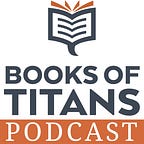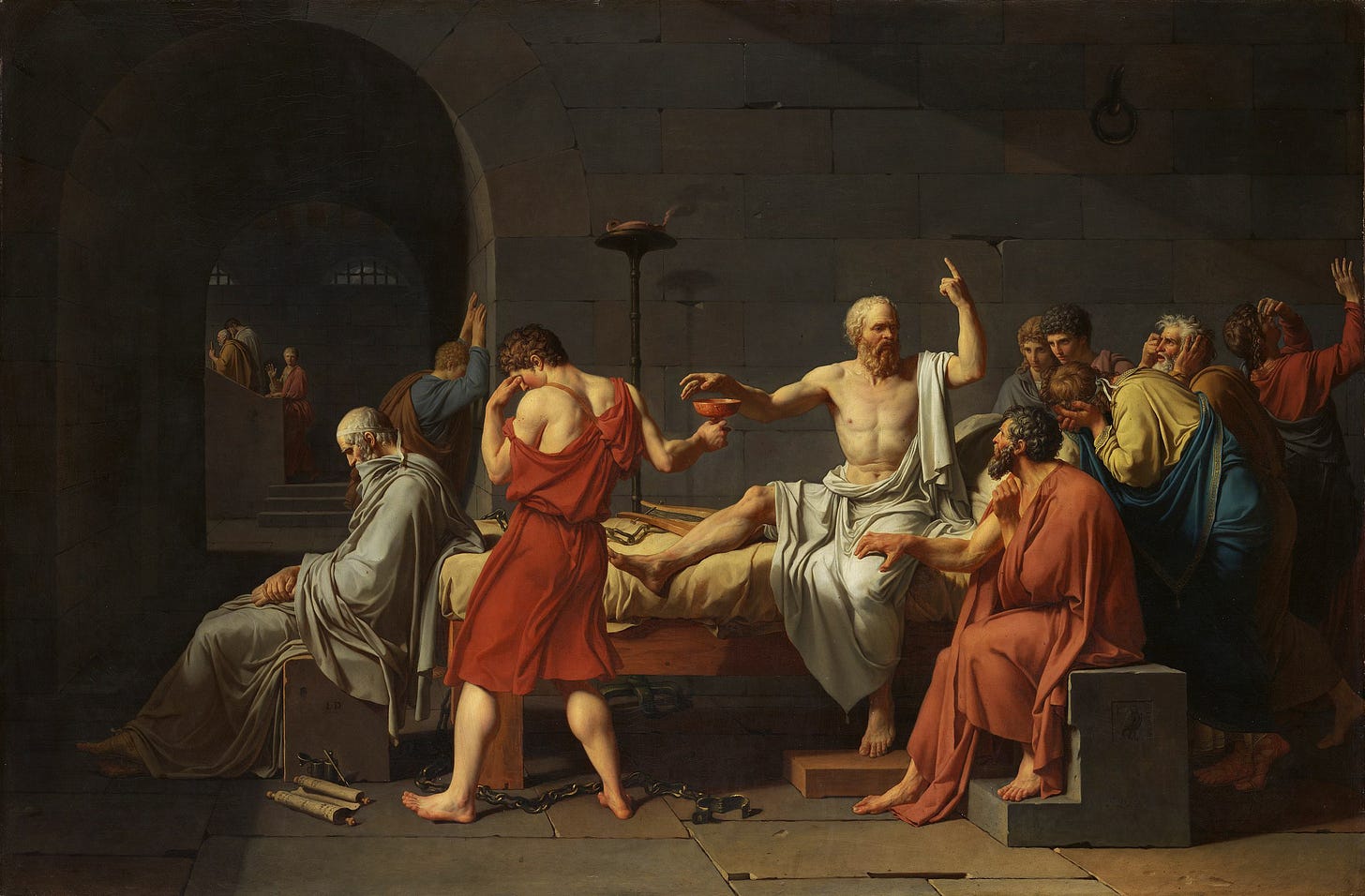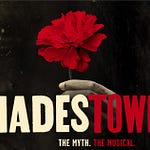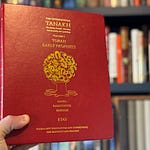Were you there?
It’s the opening question of this dialogue. Echecrates is asking Phaedo if he was there when Socrates drank the hemlock and died in prison. He was there. This is Phaedo’s account of the final day of Socrates.
I wonder what I would do knowing I had a few hours to live. Would I be frantic? Would I conduct a dialogue about the soul as Socrates does here? Would I calmly drink my death sentence that 500 of my peers had bestowed upon me? I doubt it. Socrates was calm. He died as he had lived.
There are some incredible parts to this dialogue. With a few hours left to go, we find Socrates “versifying” the Fables of Aesop. He’s setting prose to poetry. He’s not creating anew. He’s improvising on what already exists. It’s an incredible thing to consider. Socrates didn’t leave any writings, but he did apparently leave some poetry.
The bulk of this work considers a questions that would be on the forefront of anyone’s mind about to exit this world. What’s next? Socrates argues that we have a soul that will continue into an afterlife. In fact, he argues that that soul pre-existed embodiment and that our learning was simply a recollection of Forms or Ideas encountered in that state. Socrates was being completely rational then in his calm willingness to die. This was simply a continuation of how he had lived his life, a betterment of the eternal part of him. His life as a philosopher was preparation for death.
In this episode, I cover the main arguments, talk about three things that stuck out to me, ask 6 questions that I hope to get answered in other Plato dialogues, and close out with the One Thing I always hope to remember from Phaedo by Plato.
Book Versions Read or Consulted:
Plato Complete Works - edited by John M. Cooper - translated by G.M.A. Grube
Phaedo - translated by David Gallop - Oxford World’s Classics
The Last Days of Socrates - translated by Hugh Tredennick and Harold Tarrant (intro) - Penguin Classics (just read the intro in this one)













